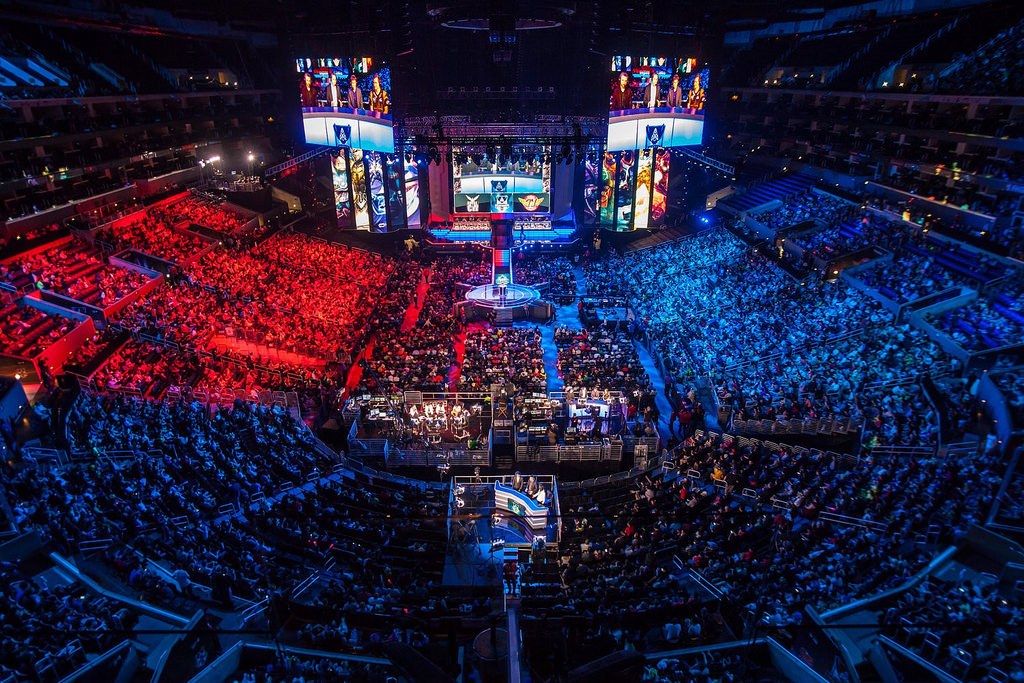
ESports popularity on the rise in Canada
By Isaac Celis, January 10 2016 —
Dyrus, TSM, Natus Vincere (Na’Vi), Arteezy, Justin Wong, Mango — to the average sports fan, most of these names mean nothing. But to avid competitive gaming fans, these high-profile names are equivalent to Jose Bautista, the Golden State Warriors, Sidney Crosby, Tom Brady and Michael Jordan.
Electronic sports — or eSports — are a worldwide phenomenon. Millions of players participate in a variety of global eSports competitions from League of Legends to Counter-Strike: Global Offensive (CS:GO) and Dota 2. And despite eSports starting out with a fairly limited audience, participation rates have continued to grow in recent years. In 2015, 36 million people streamed the League of Legends world championships online — a 33 per cent increase from 2014.
But while eSports have shown a dramatic increase in participation numbers, traditional sports have suffered. According to a study by Vital Signs and the True Sport Foundation, sports participation is declining across all age groups, with teenagers aged 15 to 19 showing the fastest decrease rates. In 2005, only 51 per cent of children aged five to 14 participated in sports, down from 57 per cent in 1992.
The numbers are in even more severe decline for people over the age of 15. Canadian General Social Survey data suggests that national participation rates have decreased since 1992. In 2010, 26 per cent of Canadians age 15 and older regularly participated in sport representing a 17 per cent decline since 1992.
A lack of interest in sport reaches beyond Canada. A 2015 report by ParticipACTION reviewed 43 international studies representing nearly 470,000 five to 19-year-olds and found that the leading causes of sport dropout are lack of enjoyment, low perceived competence and an increase in pressure rather than structural constraints like injury and limited availability.
This data highlights the fact that young people are losing interest in organized sports. But while sport participation continues to die, eSports have become the new buzzword in sport culture. With widely accessible playability and high-stakes competition available, many young people are turning away from traditional sports and focusing instead on eSports.
“By about age 13, many youngsters have already stepped away from an active lifestyle,” wrote James Strashin for the CBC. “And it can’t simply be chalked up to laziness, video games or ‘kids these days’.”
Why is it that kids aren’t participating in traditional sports like they used to?
“Adults should get much of the blame,” writes Strashin. “Most kids quit because they think they’re not good enough — a by-product, experts say, of the hyper-competitive environment that lords over most youth sports.”
Along with this ultra competitive environment is the increased cost to participate. According to the Vital Signs study, households in Alberta spend the most out of all the provinces to put their kids in sports — around $1,400 dollars per year per child. Contrary to popular belief, recreational hockey costs more than equestrian according to a study published by the Solutions Research Group based out of Ontario.
But in 2017, you can even attend university for eSports rather than traditional varsity sport paths. Many United States universities offer scholarships and programs for top eSports athletes who compete through the National Collegiate eSports Association. The University of British Columbia has gaming teams that compete in League of Legends and Dota.
Beyond collegiate eSports, the money earned while playing at a top level is nothing to scoff at. Just last year, the sixth iteration of the International — a tournament for Dota 2 hosted by the gaming juggernaut Valve — had a $20.7 million prize pool, with a staggering $19.1 million provided from fans worldwide.
As a millennial, I grew up playing videogames and it’s safe to assume a good number of others did as well. Not only did I play video games, I also grew up watching people play video games on twitch.tv and YouTube. Now with
well-established platforms, younger generations have unprecedented access to this content, making them more predisposed to join or participate in competitive gaming over traditional sports.
Like many traditional sports, eSports requires only a few things to participate. In most cases, all you need is a computer and decent internet connection. Most games follow a free-to-play model, where players have the opportunity to play right away. No paperwork, no practice schedules — eSports are literally just a click away.
Playing eSports offers a social experience that connects players with an international community. Some of the most popular eSports games are team games much like soccer or basketball. But the global reach of eSports means that for most players will be interacting and coordinating with strangers on the internet across the globe. A teammate from one game might be from Kuala Lumpur and the next game you might be matched up with someone from Edmonton.
But despite the draw of eSports, a balance of physical and more skill-based activity is essential to human development. Youth who choose eSports over regular sports may face health consequences in the future. Like anything, eSports are best in moderation. Despite their international popularity, they shouldn’t serve as a replacement for traditional sport and outside play, which are both vital to the physical development and overall health of young people.
The Vital Sign and True Sport Foundation study outlines a number of core tenents that they believe will help ameliorate the decline of organized sport in Canada — from inclusivity of marginalized communities to making sports more affordable and emphasizing fun over winning. ESports might be exciting for the future of electronic competition, but for young people it shouldn’t be the ultimate replacement for a game of shinny with friends or a pickup game of basketball.
